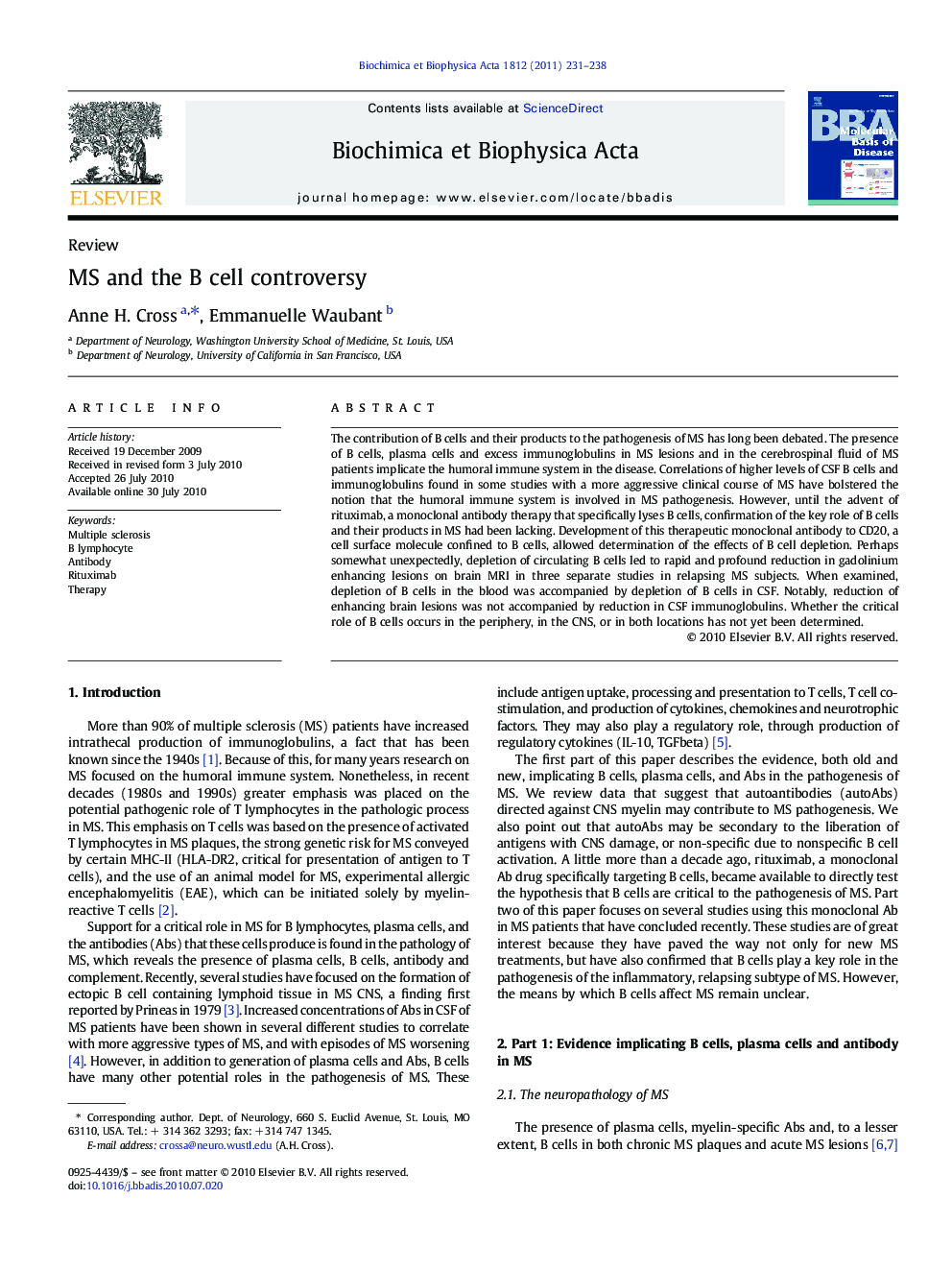| Article ID | Journal | Published Year | Pages | File Type |
|---|---|---|---|---|
| 1905265 | Biochimica et Biophysica Acta (BBA) - Molecular Basis of Disease | 2011 | 8 Pages |
The contribution of B cells and their products to the pathogenesis of MS has long been debated. The presence of B cells, plasma cells and excess immunoglobulins in MS lesions and in the cerebrospinal fluid of MS patients implicate the humoral immune system in the disease. Correlations of higher levels of CSF B cells and immunoglobulins found in some studies with a more aggressive clinical course of MS have bolstered the notion that the humoral immune system is involved in MS pathogenesis. However, until the advent of rituximab, a monoclonal antibody therapy that specifically lyses B cells, confirmation of the key role of B cells and their products in MS had been lacking. Development of this therapeutic monoclonal antibody to CD20, a cell surface molecule confined to B cells, allowed determination of the effects of B cell depletion. Perhaps somewhat unexpectedly, depletion of circulating B cells led to rapid and profound reduction in gadolinium enhancing lesions on brain MRI in three separate studies in relapsing MS subjects. When examined, depletion of B cells in the blood was accompanied by depletion of B cells in CSF. Notably, reduction of enhancing brain lesions was not accompanied by reduction in CSF immunoglobulins. Whether the critical role of B cells occurs in the periphery, in the CNS, or in both locations has not yet been determined.
